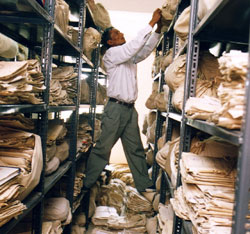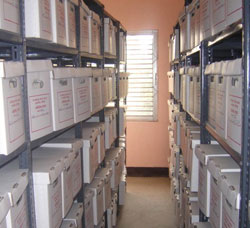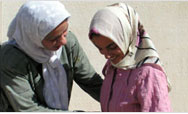You are here » Home » Telling Our Story
Before & After
Updating and stream-lining archives at the Lalitpur District Court
Boxing Up Corruption

| |
Photo: ARD
|
|
BEFORE - The file room at Lalitpur District Court was in disarray. Locating and retrieving files was difficult and usually depended on whether the court staff remembered a file’s location. Case files were often held together with string or stuffed in cotton sacks on the floor.
|
| |

| |
Photo: USAID
|
|
AFTER - USAID trained court staff in archiving and helped organize the court’s file room. With files boxed and neatly stored on shelves, the court runs more efficiently. Files over 12 years old, which made up 33 percent of the archives, were removed to free up clutter and space.
|
In a country where corruption and inefficiency are endemic, addressing basic problems, like disorganized government files, is a good start. In the Lalitpur District Court in the Kathmandu valley of Nepal, over 50,000 files, some of them more than 100 years old, overwhelmed the small room in which they were stored. Many files were in bad shape with missing or damaged documents.
Court staff would use this situation to require to citizens to make “small contributions” — or bribes — to find their files. In order to help support rule of law and root out one cause of corruption and court delays, USAID funded a project that provided on-the-job training in archiving and document retrieval. In total, 28,000 case files were repaired, boxed, and shelved and 2,000 files of supporting documents returned to the government agencies from which they were borrowed. An automated file retrieval system was also installed. Lalitpur District Court’s archives now serve as an example for courts throughout the country.
Print-friendly version of this page (505kb - PDF)
Click here for before high-res photo
Click here for after high-res photo
Back to Top ^ | 

